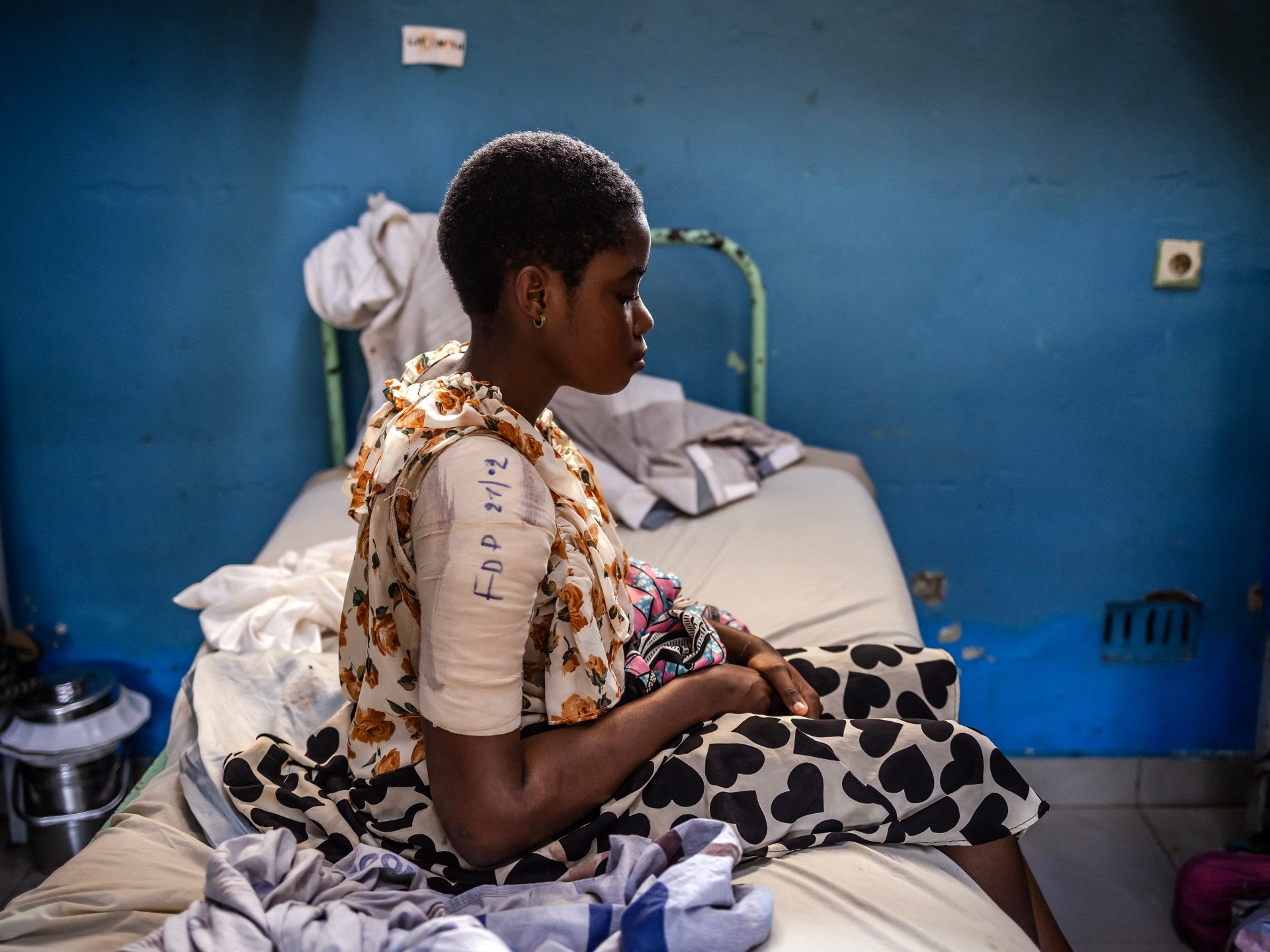Africa
Photos: UN warns M23 advances threaten regional conflict in eastern DRC

The Rise of M23 in Eastern DRC: A Growing Threat to Stability
The Democratic Republic of the Congo (DRC) is facing a mounting crisis as the M23 armed group continues its relentless advance in the eastern regions of the country. This Rwanda-backed militia has recently seized control of two key cities, Goma and Bukavu, and is now pushing further into strategic zones in North and South Kivu. The United Nations has issued a stark warning about the escalating conflict, highlighting the very real risk of a regional war that could draw in neighboring countries and have devastating consequences.
The M23, which has been active in the region for years, has reportedly gained significant momentum in recent weeks. Its rapid progression has raised concerns among international observers, who fear that the conflict could spiral out of control. The group’s capture of major urban centers like Goma and Bukavu has not only displaced thousands of civilians but also disrupted economic and social life in the region. With the M23 now positioned near the borders of Rwanda and Burundi, the situation is increasingly volatile.
The Advance on Strategic Zones: M23’s Military Strategy
The M23’s strategic focus appears to be on securing key military and economic hubs in eastern DRC. By taking control of Goma and Bukavu, the group has gained access to vital infrastructure, including transportation routes and natural resources. These cities are not only crucial for the movement of goods and people but also serve as centers for governance and administration in the region. The fall of these cities has emboldened the M23, which is now pressing onward toward other strategic locations.
According to the UN Secretary-General’s special envoy for the Great Lakes region, Huang Xia, the M23’s advance is particularly concerning because it is approaching areas that could spark a broader regional conflict. The group’s proximity to the borders of Rwanda and Burundi has raised fears that these countries could be drawn into the fighting, either directly or indirectly. While the M23’s ultimate goals remain unclear, its actions suggest a deliberate effort to destabilize the DRC and assert control over key resources and territory.
A Looming Regional Crisis: The Risk of a Catastrophic Conflict
The situation in the DRC is not just a local issue; it has the potential to engulf the entire region in chaos. The UN has repeatedly warned that the conflict could spread beyond the DRC’s borders, drawing in neighboring countries like Rwanda, Burundi, and potentially others. Such a scenario would echo the devastating Second Congo War of 1998–2003, which involved multiple African nations and resulted in millions of deaths from violence, disease, and starvation.
The parallels between the current crisis and the Second Congo War are unsettling. Both conflicts involve armed groups vying for control of resource-rich regions, with foreign powers playing a significant role in fueling the violence. The M23’s ties to Rwanda have further complicated the situation, as allegations of external support have strained relations between the DRC and its neighbors. With the region already on edge, any miscalculation or provocation could trigger a wider conflict with catastrophic consequences.
Historical Context and Fears of Another Congo War
The Second Congo War, often referred to as Africa’s World War, was one of the deadliest conflicts in modern history. It involved more than a dozen African countries and led to widespread destruction, displacement, and loss of life. The war was fueled by competition for the DRC’s vast natural resources, including minerals like cobalt, copper, and gold, which are critical to the global economy.
Today, the fear is that history could repeat itself. The M23’s advance has already caused significant displacement, with thousands of civilians fleeing their homes to escape the violence. Humanitarian organizations are sounding the alarm about the growing crisis, as access to food, water, and medical care becomes increasingly limited. The UN peacekeeping mission in the DRC, known as MONUSCO, has been working to stabilize the region, but its efforts have been hampered by the M23’s relentless advance.
The Role of International Organizations and the Call for Action
The United Nations and other international organizations have been urging calm and calling for a diplomatic resolution to the crisis. However, the situation on the ground remains dire. The head of MONUSCO, Bintou Keita, has expressed grave concern about the M23’s movements, particularly its presence near the borders of Rwanda and Burundi. She has emphasized the need for urgent action to prevent the conflict from escalating further.
The international community has a critical role to play in addressing the crisis. This includes providing support to displaced populations, facilitating dialogue between the warring parties, and holding those responsible for the violence accountable. Without concerted international efforts, the situation in the DRC could deteriorate rapidly, leading to a regional catastrophe.
The Human Cost and the Need for Urgent Action
The people of the DRC are bearing the brunt of the conflict. Civilians caught in the crossfire are facing unimaginable suffering, with many forced to flee their homes, separated from their families, and left without access to basic necessities. Women and children are particularly vulnerable, as they often become targets of violence, exploitation, and abuse.
The international community cannot afford to stand by as the situation spirals out of control. The UN and other organizations must work tirelessly to broker peace, protect civilians, and address the root causes of the conflict. This includes addressing issues of governance, resource management, and social inequality that have fueled tensions in the region for decades.
In conclusion, the crisis in the DRC is a ticking time bomb that demands immediate attention and action. The M23’s advance has brought the region to the brink of war, with the potential for catastrophic consequences. It is up to the international community to intervene decisively, ensuring that history does not repeat itself and that the people of the DRC can live in peace and security.











